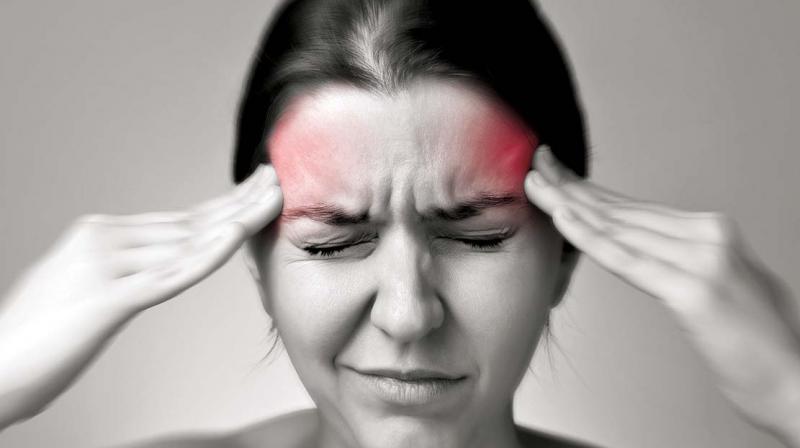Migraine patients risk strokes, heart attacks
City doctors warned that the risk of stroke and heart attack is 2-3 times higher among migraine patients.

BENGALURU: Migraine is the most common headache these days and an increasing number of patients are consulting physicians for the disorder. Migraine, a neurological disease, affects one in seven people across the globe. However, only 50% receive correct diagnosis and majority does not access appropriate treatment. City doctors warned that the risk of stroke and heart attack is 2-3 times higher among migraine patients. Ahead of a Migraine Awareness Week, doctors said that lack of awareness, inadequate or inappropriate treatment resulting from myths and misconceptions, and incorrect diagnosis are the major reasons for high prevalence of this treatable disorder.
Dr Harirama K. Acharya, Clinical Director, Department of Neurosciences, Narayana Health City, said, “Today, 90% of the patients who consult physicians for headaches perhaps have migraine. It is characterised by recurrent attacks of moderate to severe head pain that is throbbing or pulsating in nature, often striking one side of the head, though both sides may ache.”
“Migraine often begins in childhood, adolescence or adulthood, but not in old age. Migraine pain usually peaks within 1-2 hours of onset and typically lasts for 4-72 hours,” said Dr Madhusudhan B.K., Consultant Neurologist & Epileptology, BGS Gleneagles Global Hospitals. The other common symptoms include increased sensitivity to light, noise, odours and nausea and vomiting. A British Medical Journal showed that migraine is strongly associated with increased risk of stroke and cardiovascular diseases.
Dr Girish Navasundi, Senior Consultant Cardiologist, Apollo Hospitals Bannerghatta Road, said, “In addition to having a higher risk of stroke, both men and women with migraines (with aura in particular) also have a higher risk of heart disease, especially heart attacks. To keep yourself as healthy as possible, control your weight, cholesterol, and blood pressure.” He said that people with migraine often use anti-inflammatory drugs, which are associated with increased risk of heart problems, while immobilisation related to migraine attacks may increase the risk of blood clots. Dr Harirama said that most people who suffer migraines have a family history, suggesting a strong genetic susceptibility.
“Precise cause of migraines in unclear, but there is general agreement that blood flow changes in the brain are a key factor,” he said. Experts suggested that avoiding stress, identifying and avoiding migraine triggers such as certain foods, drugs or particular activities, ensuring adequate food intake and physical exercise, relaxation with appropriate medications can improve one’s quality of life.

